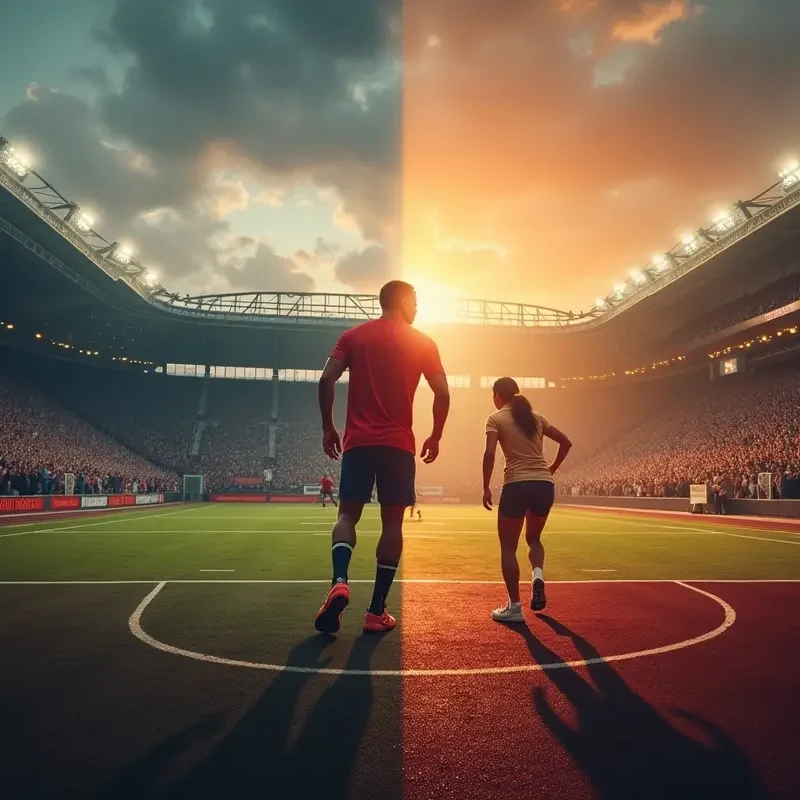Some moments stay with us. Like when your team is down by 20 points, somehow claws its way back and wins at the buzzer (what a rush!). Or when someone writes off an athlete only to see them take the stage again years later, stronger than ever. Think Tiger Woods (at The Masters) or Serena Williams after motherhood, who could forget?. It’s the kind of stuff we replay in our heads, tell others about, and secretly hope to live ourselves.
But why are we so into comebacks? Why do these stories hit harder than dominant wins?
Here’s the thing: comebacks feel personal. They remind us that failure is not neseserlly the end. That grit still counts. Here’s why we can’t look away and what it says about us.
We See Ourselves in the Struggle
Think about how many people play the long game. Not just in sports, but in jobs, relationships, even things like starting over after a mistake. There’s something deeply human about rooting for someone who looks done and then turns it around.
Even when we play something as random as a casino game, we still feel that tension. You’re down, you’re almost out, and then- bang! You hit a lucky streak. That shot of adrenaline, of “maybe I can turn this around,” is powerful. You can feel it yourself at places like Betway’s online casino, where near misses and surprise wins are part of the appeal.
And it’s not just luck. It’s the emotional rollercoaster. The suspense. The fact that you stayed in it when others would’ve tapped out.
Sports Fuel That Feeling in Real Time
Let’s get real: dominant teams get respect, but comeback stories win hearts.
Take the Kansas City Chiefs’ comeback in Super Bowl LIV. Down 10 points with just over 7 minutes left, Patrick Mahomes led a wild turnaround. Three quick touchdowns later, the 49ers were stunned. The Chiefs walked away with the win, and fans walked away with a memory.
Or look at tennis legend Serena Williams. She was facing life-threatening complications a pulmonary embolism – a blood clot in her lungs that required emergency intervention. That was just after giving birth and she eventually returned to the top level. No one would’ve blamed her for retiring right then. But she didn’t. Instead, she returned to compete in Grand Slam finals, showing the world what resilience looks like. And people felt that.
What these moments give us is proof that effort matters, especially when the odds suck.
Science Says We’re Wired for It
This isn’t just emotion talking. There’s actual research behind our obsession. Studies show people naturally root for underdogs and comeback stories (even when the outcome is the same). Why? Because those stories show effort and resilience. And we like to believe those things still matter.
Other research, including recent studies in psychology and neuroscience, shows how comeback narratives amp up our emotional engagement. It turns out, people feel more excitement and connection when watching someone battle from behind than when witnessing a complete blowout. The brain quite literally lights up in response to the tension and relief in these stories.
So if you’ve ever shouted at the TV when someone rallied from 0-2 down or walked out of a stadium shaking your head in disbelief, still in shock, it’s not just hype. Your brain loves the drama.
Comebacks Aren’t Always About Winning
Here’s what often gets missed: not every comeback ends in a trophy.
Sometimes, it’s about just showing up again. Like when an athlete returns after injury, not to dominate, but to prove they still belong. Or when someone goes through hell in their personal life, and then slowly rebuilds.
That’s still a comeback.
There’s a reason stories like Simone Biles returning to competition after withdrawing from Olympic events drew so much attention. She didn’t need to “win” to earn respect. Just getting back out there was enough.
It reminded us that comebacks can be messy. They’re not always wrapped in a perfect bow. But they still matter.
Why It Hits Harder Now
In a world where everything moves fast and people are quick to judge, comebacks give us space to rethink. To be patient. To hope.
We’re also coming off a few rough years globally. Everyone knows someone who had to start over. That’s why seeing someone rise again, whether on a court or in real life, doesn’t just entertain us.
It gives us something to hold onto.
Final Thought
Not every story has a neat arc. But comebacks remind us that a bad chapter doesn’t mean a bad ending.
Whether it’s a team that refuses to quit, a player who fights back after injury, or someone hitting reset on their life… We watch, we cheer, and we feel it. Because we’ve all been there in some way.
And maybe, just maybe, we’re hoping our own comeback is next.






